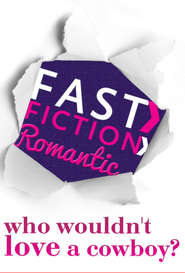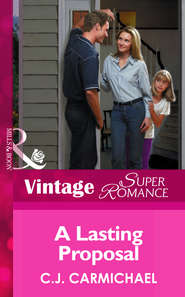По всем вопросам обращайтесь на: info@litportal.ru
(©) 2003-2024.
✖
Small-Town Girl
Автор
Год написания книги
2018
Настройки чтения
Размер шрифта
Высота строк
Поля
Ah, Russell… The memory faded as quickly as it had arrived, landing her back in the living room with her husband of ten years. Ten very good years. Only, lately… Well, they’d been under a strain.
“Ben’s always tired after therapy,” Russell reminded her.
In his tone she heard the effort of strained patience. She’d always liked things just so in her house and her life. But lately, well, since the accident, she’d been unable to let anything slide. Everything had to go according to plan, like clockwork, or she couldn’t cope.
She knew her behavior drove Russell to the brink of his patience—which said a lot, because Russell was one of the most patient men she’d ever met.
But she couldn’t help herself.
“I’m so glad we’re finished with therapy.” Julie wanted to believe the nightmare was now behind them. Those two months of Ben in hospital, then these last two, where he’d received outpatient treatment. According to his neuropsychological assessment he was ready to reengage in regular life.
Russell, reading again, didn’t add any comment. She surveyed the world through the flattened slats of the wooden blinds. Late August, and the city was lush with its abundant greenery. In the distance, the ocean sparkled like a band of platinum in the setting sun.
“Dinner’s almost ready. I suppose I can just keep the chicken warm.”
“If he isn’t up in fifteen minutes, I’ll prod him a little.” Russell didn’t lift his gaze from his book this time; still, Julie heard the sigh behind his words.
Relax, Julie. He’d said the words to her so often these past months he didn’t need to utter them anymore. They rang in her ears like a mocking refrain. Because relaxing was something she’d never been good at. And now…
“I’ll check on the food.” She left the room and went down the hall to the kitchen. But there was nothing to do there, either. The counters were clean and the table set. A chicken-curry casserole warmed in the oven. The rice steamer was on hold; a garden salad waited in the fridge.
She brushed a hand over Ben’s dinner plate. Closing her eyes, she could picture him here, talking and eating at the same time, tipping his chair back on two legs, barely swallowing before putting more food into his mouth.
Habits she’d once hated, and now missed desperately. Since the accident Ben ate so carefully, struggling to control his fork, not to spill his milk.
She turned to the fridge, where for years she’d kept a calendar posted with Ben’s homework deadlines, after-school commitments, play dates with friends.
Now the only writing in the clean, white squares were the times for his scheduled rehab therapy, ending with today’s. All that loomed was the September 3 back-to-school day. Would Ben be ready to face those academic and social challenges? More important, would his friends and teachers be ready for him?
Not many of the guys he chummed around with had called since he’d been released from hospital. Even Jeff, his best friend, had come around only once. Though to be honest, Ben didn’t seem to want to see his friends, either. Was he self-conscious about the changes in himself? Or was he still too weak to play?
Julie didn’t know the answers. Not to these questions, or any of the hundred others she’d had since Ben’s accident. The doctors were no help. They’d adopted a “wait and see” attitude that drove her nuts.
She’d waited too long already, damn it! Hadn’t Ben suffered enough—hadn’t they all?
Despite the hours and hours at therapy, Ben’s speech was still slow—he had to search for the words that had once spilled out of his mouth like the froth from a shaken soda can. His balance was shaky; his memory, unreliable. Worst of all were the headaches and his frustrated anger.
“It’ll be okay, Ben,” she promised her son every night, but as the days passed into weeks and months, she’d begun to feel like a liar. Ben wasn’t okay, at least not yet.
She’d memorized the chapter on traumatic head injury in the book she’d bought on brain disorders, as well as every word Dr. Assad had ever spoken to them. Her acquired knowledge offered as much cause for worry as for hope.
Every brain injury was unique. Outcomes were unpredictable. So far they’d been lucky. Ben had emerged from the coma. That was the biggie, wasn’t it? She tried to be grateful, but it was hard.
If only…
Biting her lip, Julie opened a cupboard door at random and began to clean.
“SALAD?” JULIE ASKED rhetorically as she passed the crystal bowl from her husband to her son. Ben, using the silver tongs awkwardly, portioned some of the greens onto his side plate.
Once the highlight of Julie’s day, the dinner hour at home had turned into an ordeal—and not just for her. Ben sat quiet and withdrawn—usual for him since the accident. His hair, so like his father’s, had grown to cover most of the scar tissue on his forehead. While he’d regained some weight in the past month, he remained five pounds lighter than before the accident in April, and Julie struggled not to urge him to eat more.
All three of them had lost weight. Her waistbands were loose and Russell had dropped at least ten pounds. Naturally thin, now he appeared almost gaunt.
Of all of them, he made the most effort to keep dinner pleasant, filling the conversation that had once been centered on Ben’s school day and recess antics with stories about the university.
“Can’t say I’m sorry there are only two weeks left in the summer session,” he said. “This has to be the most boring batch of students I’ve ever had. Even Weasel has been quiet lately.”
“Didn’t beg for any extra marks in last week’s assignment?” Julie asked.
“Surprisingly, no. Though maybe he considered himself fortunate I’d been as generous as I was. He should have been, anyway.”
Ben stabbed at his plate with his fork until he speared a piece of chicken. If he was paying attention to any of this, it wasn’t noticeable.
Russell sighed and his forehead creased. Julie had seen a lot of that frown lately. Probably she sported one on her brow, too. Struggling to smile, she tried to tell a story about an aborted photo shoot at a new home furnishings store on Robson Street, but the story fizzled halfway through.
“Anyway, it was quite a mess. But I guess you had to be there.” She forked a piece of lettuce, then another and another.
“Can I be excused?” Ben asked. He pushed back from the table. In the past, he’d spent most evenings playing with Lego or reading with her and Russell in the living room. Lately he preferred to blockade himself in his bedroom.
Julie set aside her plate, fighting an urge to hurl it at the kitchen window. Everything had been so perfect before the accident. Why did it have to happen? They were good people. They didn’t deserve…
Hell. She forced her mind to go blank. That kind of thinking got her nowhere. And she knew it.
The accident was reality. Ben’s injury was reality, too. Now, deal with it, Julie. You’re the mother here. So why couldn’t she say the right things, do the right things, to make this family whole again?
“I’ve been thinking, Julie.”
She’d almost forgotten Russell was still in the room. “Yes?”
“This family needs a change.”
Caution made her reply slowly. “What do you mean?”
When her husband didn’t answer right away, she kept going. “If you’re suggesting a holiday, I’d been wondering if we might squeeze in a week at Saltspring before school starts now that Ben’s therapy is finished. Any chance you could get away?” She knew he was already busy preparing for the fall session.
Russell drummed his fingers on the table. He was an academic, but he had hands that looked as though they could actually do something. Tighten a valve, unclog a sink, change the oil in a car.
“We always go to Saltspring,” he said.
Well, of course. They had a cottage on the ocean. Why wouldn’t they go to Saltspring? “What kind of holiday did you have in mind?”
“I wasn’t thinking of a holiday. I’m proposing a real change—something permanent.”
Oh, no. She didn’t like the sound of this. What she needed—what they all needed—was a return to normal. Not change. Especially not permanent change.
Watching Russell, she experienced the disorienting sensation of observing a stranger. She had absolutely no idea what he was thinking right now. When was the last time they’d talked—really talked—about something other than Ben?
Actually, they didn’t even talk about Ben anymore. She hated seeing the strain on her husband’s face when she admitted her deepest fears. So she did her best to keep them to herself. If Russell had any anxieties of his own, she never heard them. Maybe he was protecting her? Or maybe his ingrained optimism protected him from imagining the worst. Nothing got Russell down. Apparently not even the near death of his son.











